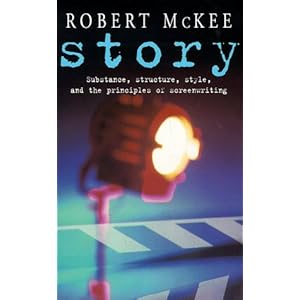
Story: Substance, Structure, Style and the Principles of Screenwriting
Over the past 18 months or so I've listened to a lot of podcasts featuring authors talking about their work. I've also read a lot of author interviews and, unsurprisingly, plenty of books about writing. Almost all of the books have contained at least one nugget of inspiration or usefulness - some far more. One has proved absolutely indispensable - so much so that I bought the audiobook as well so I can listen to sections on the go.
Robert McKee's Story is aimed at screenwriters and, as such, uses examples from the world of film to illustrate its points. Don't let that put you off if you're a novelist - this book is simply a masterclass in the art of telling a story and telling it well.
McKee manages to strip away the layers and get right to the heart of what drives great storytelling - the gap between expectation and reality. By examining the structure of story (from the overall arc of the work to the reversals of each scene) he manages lay out some simple points to consider that will tell you where to go - if you listen.
That doesn't mean that Story is a step-by-step guide to writing a great screenplay or novel - far from it. What the book does is allow you to see the patterns, devices and structures used in great storytelling and shed some light on why the best writing is so effective.
I've read the whole book at least three times and, whether through selective re-reading or via headphones, must have covered some sections half a dozen times. I'm at the planning stages of my second novel - if I can build and sustain a career doing this I can only see those numbers growing.
The best £12 I've spent since realising I wanted to write.
Buy it now.






